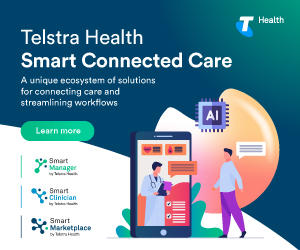COAG Health Council decisions shaking up healthcare
Doctor’s mental health initiatives, organ donation overhaul, real-time prescription monitoring and improving primary care for victims of domestic violence are just a few of the latest issues tackled by the COAG Health Council’s recent meeting.
Chaired by ACT’s Health and Wellbeing Minister, Meegan Fitzharris MLA, the federal, state and territory Health Ministers met in Sydney on Friday, 13th of April at the COAG Health Council to discuss a range of national health issues.
In a communiqué published soon after the meeting, major items discussed by Health Ministers today included:
Removing barriers to health professionals seeking treatment for mental health
In a landmark decisions, Ministers agreed unanimously to take steps to protect patients and strengthen the law to remove barriers for registered health professionals to seek appropriate treatment for impairments including mental health. This means doctors will be free to seek treatment for most mental health problems without being reported to AHPRA.
Ministers agreed to a nationally consistent approach to Mandatory reporting requirements under the Health Practitioner Regulation National Law, which will be drafted and proposes exemptions from the reporting of notifiable conduct by treating practitioners.
The legislation will include:
- Strong protection for patients and will remove barriers for registered health professionals to seek appropriate treatment
- A requirement to report past, present and the risk of future sexual misconduct
- A requirement to report current and the risk of future instances of intoxication at work and practice outside of accepted standards.
Western Australia endorsed continuance of its current approach that has been operational in WA since 2010 for treating health practitioners. Health practitioners in a treating relationship based on the reasonable belief can make a voluntary notification as part of their ethical obligations in relation to any type of misconduct.
Review of the organ donation, retrieval and transplant system
Ministers agreed that the Commonwealth undertake a review of the organ donation, retrieval and transplantation sector in collaboration with states and territories. The review is set to:
- Examine (pre and post) transplantation services
- Identify barriers to equity of access to transplant waiting lists and transplantation services
- Inform the development of a long-term strategy for organ retrieval and transplantation
- Build on the Government’s national reform agenda on organ and tissue donation and transplantation.
It is anticipated that a progress update, including any early findings from the review, will be provided to Ministers in August 2018.
Digital Health Update
Ministers agreed in principle to a new ‘Intergovernmental Agreement on National Digital Health’ (IGA) for the period 2018-2022. The IGA provides funding to the Australian Digital Health Agency to operate an effective national digital health capability, including national digital health systems, supporting foundations, standards and infrastructure.
The new agreement is set to replace the existing IGA, which is due to expire on 30 June 2018.
Real-time prescription monitoring
The Ministers agreed to progress national real-time prescription monitoring as a federated model, with jurisdictions committed to progressing development and adaptation of systems to connect to and interface with Commonwealth systems to achieve a more streamlined, national solution.
Cannabis and tobacco regulation
Ministers agreed to progress the development of a single national online application pathway to access unregistered medicinal cannabis products.
The proposal is to streamline access to medicinal cannabis by developing a single entry point that covers both the Commonwealth and state and territory application and approval processes for unregistered medicinal cannabis products.
This process is set to avoid duplication of decisions regarding clinical appropriateness, while maintaining separate approvals by the states and territories necessary in managing appropriate access.
Meanwhile Health Ministers also discussed a proposal to increase the minimum legal age of tobacco purchase to 21 years, and agreed to refer that proposal to the Australian Health Ministers’ Advisory Council, with input from the Australian Institute of Health and Welfare for advice.
Training and supporting experienced overseas medical professionals
Health Ministers supported the importance of trained and experienced medical personnel in all areas of Australia, and agreed to work collaboratively with the Commonwealth to ensure that there are streamlined and simple visa arrangements to support pathways for overseas students graduating in Australia and senior international medical graduates.
The Commonwealth has committed to providing relevant information on medical places across Australia by the end of May 2018.
Improving the primary care response to family violence
Health Ministers confirmed their commitment to improving the primary care response to people experiencing family violence. Victoria has already undertaken extensive work to identify barriers to primary care practitioners identifying and responding to those people experiencing family violence.
Ministers agreed that relevant stakeholders would be :
- Consulted on the role and scope of primary care in responding to family violence,
- Asked to identify barriers that may impact on primary care providers performing this role
- Recommend options to address this issue.
In addition, Ministers agreed to develop further training materials and resources with the Royal Australian College of General Practitioners and to scope the implementation of a trial on family violence training in two jurisdictions via the Primary Health Networks.
Funding determinations
The Commonwealth Minister for Health re-iterated the Government’s hospital funding offer as outlined to COAG on 9 February 2018. Work on the implementation of the Health Innovation Fund with WA and NSW has already commenced.
Ministers also agreed that the finalisation of annual funding determinations is important to ensure funding certainty for all jurisdictions and will prioritise work to complete all steps including data clean-up to finalise the data reconciliation process.
Impact of the National Bowel Cancer Screening Program
Today Ministers discussed the importance of the National Bowel Cancer Screening Program and its expansion to offer biennial screening for all eligible Australians aged 50-74 by 2020, and the impact of the Program’s expansion on the increased volume of people requiring diagnostic assessment through colonoscopy.
Health Ministers agreed that the Commonwealth and states and territories should work together to ensure that future infrastructure and workforce capacity and development are better matched to the expected increase in demand.
Endometriosis Action Plan for Australia
Ministers noted that an action plan is being developed by the Commonwealth to ensure practicable and achievable outcomes for the women of Australia, in acknowledgment of the significant impact on thousands of women and families.
The Commonwealth will provide the draft action plan to jurisdictions to identify further key areas of research, awareness and education, and clinical management and care that may contribute to the action plan under development.









